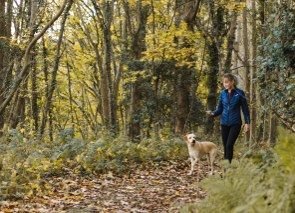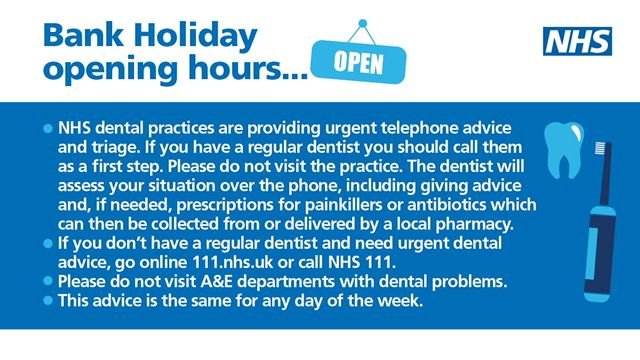Posted on: 15 May 2020
 Hello my name is Sarah.
Hello my name is Sarah.
For those who don’t know me I am Director of Public Health in Bradford (DPH) and the Lead DPH for the Partnership’s Improving Population Health Programme (also known as an Integrated Care System, ICS).
I love working in Bradford and I’m lucky enough to work with great teams, specifically in public health, across our council, and as part of a strong local partnership and the ICS. Living in West Yorkshire for a long time, as a resident in Holmfirth (previously, Leeds and Wakefield) I am proud to have worked in Kirklees before working in Bradford. If I go back even further I am equally as proud to have worked in Leeds in 2000.
As a public health professional we often get asked ‘what is public health’ and ‘what do you actually do’. I’m sure we all describe this differently, but if you are looking for a definition here is one of many. It is ‘The art and science of preventing disease, prolonging life and promoting health, through the organized efforts of society’ (Acheson, 1988; WHO). It sounds impressive, but in reality it doesn’t really tell you much.
When my boys were children and asked me what I did (they are 14 and 16 years old now), I would tell them ‘I work with lots of people, different experts, who have various roles, helping people to find things that will give them the best chance of having a healthy life. That we work to reduce the risk of people becoming unwell in the first place, and that different health and care services work together to provide what people need when they need it and that some groups of people are more likely than others to need more help’.
I think the reference to art and science is a good one. You will all know we like our data, intelligence, research, evaluation and evidence - the science. You don’t need to look far to hear the discussions taking place about the ‘evidence’. One example of this can be seen in many discussions about the overall R-rate (the number of people infected by each carrier of the virus).
The art is our skills in how we influence a wide range of people across all parts of the system to do things that are often not mandatory or statutory and don’t immediately reduce pressure or service demand. However, what it will do is improve the health and wellbeing of our local populations by using science and knowledge of health needs, so that we may not save just one person’s life today but hopefully save hundreds and thousands, and live the best life they can too.
A key role for public health is protecting people from infectious diseases, reducing the risk of people getting one and managing the outbreaks of these when they occur, which they do!
A pandemic is a large scale outbreak affecting a number of countries at the same time and COVID 19 is an infectious disease, a case example, if ever we needed another. Other ones you may have heard of are Ebola, SARS (severe acute respiratory syndrome) and flu.
The lead role for surveillance, identification and prevention of the spread of infectious diseases is with Public Health England but as a DPH I know my patch and alongside partners, leaders and communities, we understand local needs better, different population groups and our community assets.
Put simply; what me and my team need to make sure, is that whatever needs to happen is done in a way that works for us and takes into account our local context. It sounds easy but it only works if the DPH has a good relationship with our regional health protection team in PHE (respecting the expertise and what outcome they need), being able to navigate complex local systems and adapting the action and advice to meet the needs of different groups and communities. A good example can be seen in tackling health inequalities. We know that the impact of COVID-19 is felt the greatest in our most deprived communities, and growing evidence supports this. What we need to do is look at how we are going to address this, which we are doing.
A cornerstone of public health is epidemiology – how we understand all the factors that contribute to the presence or absence of an illness or disease (in this case COVID 19), how many people have it, if different groups are more affected or at risk than others, if numbers are changing, and how this affects people, society and our economy. We are the people that will talk to you about the data and numbers to track COVID-19 in terms of whether the situation is getting worse and identifying when the actions that public health and others are taking are working. This includes identifying where actions are not working for population groups and what more we need to do to adapt our approach.
Reflecting on where we are so far in this journey to stop this pandemic in its tracks there has been some key actions from a public health perspective – infection prevention and control, testing and contact tracing now referred to as ‘test and trace’.
COVID- 19 is highly infectious, and it has been and will continue to be, important to take actions to prevent the spread of the virus to protect ourselves, our families, people in our care and the workforce.
Stay safe and well - have a good weekend
Sarah
What else has been happening this week?
New podcast series from our BAME network
"Can you hear me?" is a brand new podcast giving a voice to the diverse talent working to improve health and care for people in West Yorkshire and Harrogate, presented by our Black, Asian and Minority Ethnic (BAME) Talent Network.
In our pilot episode, presenter Fatima Khan-Shah (BAME Network member and Programme Lead for both the Unpaid Carers and Personalised Care Programmes at West Yorkshire and Harrogate Health and Care Partnership) discusses everything you wanted to know about Coronavirus but were afraid to ask with guests Yvonne Coghill, Sal Uka, Nyoka Fothergill and Habib Naqvi.
All the Partnership's podcasts are available on our website, along with guest bios for this episiode.
Our workforce health and wellbeing offer
 Whilst we are moving beyond the initial peak in acute demand for health, care and wider support services for Covid-19, we understand the need to be prepared for any future acute peaks and at the same time, manage our stabilisation and reset of paused services.
Whilst we are moving beyond the initial peak in acute demand for health, care and wider support services for Covid-19, we understand the need to be prepared for any future acute peaks and at the same time, manage our stabilisation and reset of paused services.
Over the coming months, these challenges will continue to have a significant impact on our entire health and care workforce - with new models of service delivery and ways of working, additional volume and complexity of demand and different roles and workplace settings. In addition, many health and care employees are being required to work from home which can be difficult, and sadly some are also dealing with personal and professional bereavement.
Prioritising the health and wellbeing of our workforce in West Yorkshire and Harrogate is the key to making sure that all employees feel looked after and in turn can provide good health, care and support services to our population. Our workforce health and wellbeing offer has been developed in collaboration with Bradford District and Craven’s Workforce Wellbeing, Knowledge and Intelligence Task (KIT) Group. It has been designed to help all employees stay as well as possible through preventative measures and to make sure they have the support they need, when they need it.
Our dedicated workforce health and wellbeing section on the Partnership’s website is particularly aimed at health and care employees across West Yorkshire and Harrogate but is available for anyone to access and use. You’ll find information, guidance and resources that have been selected by our experts as representing best practice, to help you support yourself, your team and others.
Whilst much of the content is currently around Covid-19, this offer will evolve over time in order to continue supporting health and wellbeing in the longer term - with a focus on all areas of life, care and work.
Climate change and health
A regional discussion took place on Monday about climate change and health. This was the first meeting of its kind for the Partnership and was designed to help us begin to move forward towards the Partnership’s ambition of being a global leader in responding to the climate emergency. It was chaired by Yannish Naik and Frank Swinton who are co- programme leads and included colleagues from councils and the NHS who cover various topics including environment, energy and sustainability. The work for the Partnership is led by the Improving Population Health Management Programme.
We gathered a range of views from attendees, around what it will mean for us to be a global leader on this topic, and how we can deliver this ambition. What truly stood out was the energy and passion from a wide range of people and organisations to take action together – both to develop a healthier and more sustainable society as a whole, and to deliver a high quality and environmentally sustainable health and care system. Many issues were raised, and a recurring theme was the need to make climate change a core part of our decision making across the Partnership. There are likely to be several working groups set up as part of a broader network of people working on this topic, with possible working groups focusing on estates, procurement, clinical pathways, travel and many more.
In a rapidly changing world, all organisations and individuals need to anticipate and respond to change and that means we all need to imagine new possibilities. The Alliance Axira has painted a picture about what they think the future could look like. We next need to understand what the future looks like for us. As part of this we will be engaging more broadly to develop a thorough understanding of what we need to do and how we can do it locally. This will involve working with staff, patients and the public, as well as learning from other places and systems.
West Yorkshire and Harrogate Unpaid Carers Programme
West Yorkshire and Harrogate carers resources are being shared nationally. This includes the working carers passport via NHS England and NHS Improvement and e-learning Resources developed specifically for carers developed by Health Education England.
New workforce health and wellbeing resource - 'We Learn Together'
'We learn together' is a new podcast where colleagues reflect on recent learning and how it has impacted on them, their service, the local health and care system and people in West Yorkshire and Harrogate. The first two guests are Helen Hirst, Chief Executive at NHS Bradford District and Craven Clinical Commissioning Group and Jo Farn, Programme Director for System and Leadership Development at West Yorkshire and Harrogate Health Care Partnership.
The Urgent and Emergency Care Programme (UEC)
 The UEC Programme with the support of the leadership executive group has outlined priority areas as part of the system stabilisation and reset work. There will continue to be a strong focus on integrated urgent care outside of the hospital with an emphasis on “talk before you walk”, building on the model already in place at NHS111.
The UEC Programme with the support of the leadership executive group has outlined priority areas as part of the system stabilisation and reset work. There will continue to be a strong focus on integrated urgent care outside of the hospital with an emphasis on “talk before you walk”, building on the model already in place at NHS111.
Daily intelligence reporting, which initially started in December as winter reporting, continues to be coordinated and shared by the UEC team across the system.
The UEC Programme, alongside other ICS programme, has been asked to review the metrics included in the system oversight assurance group dashboard. The metrics will be shifted to reflect the UEC ambitions in the Partnership’s Five Year Plan.
NHS England has recently shared public updates on urgent dental care during this time. This includes:
- NHS dental practices are providing urgent telephone advice and triage. If you have a regular dentist you should call them as a first step. Please do not visit the practice. The dentist will assess your situation over the phone, including giving advice and, if needed, prescriptions for painkillers or antibiotics which can then be collected from or delivered by a local pharmacy.
- If you don’t have a regular dentist and need urgent dental advice, call NHS 111.
- If your dentist or NHS 111 think that you need urgent face-to face treatment, they will refer you for local urgent dental care so that any necessary emergency dental treatment can be carried out.
- If a face-to-face appointment is necessary, you will be advised on what to do. Urgent dental centres have measures in place to minimise any risk from coronavirus
- Please do not visit A&E departments with dental problems. For those requiring urgent eye treatments, opticians are offering urgent and essential services. The first port of call is for someone to ring their local optician or if they haven’t used an optician before to phone a local optician.
Don’t Just Sit On Your Symptoms – Act Now #StillHereToHelp
In this blog on the Cancer Alliance website, Lynne shares her experience of diagnostic surgery during COVID-19 and urges anyone concerned about possible cancer to contact their GP practice for advice.

